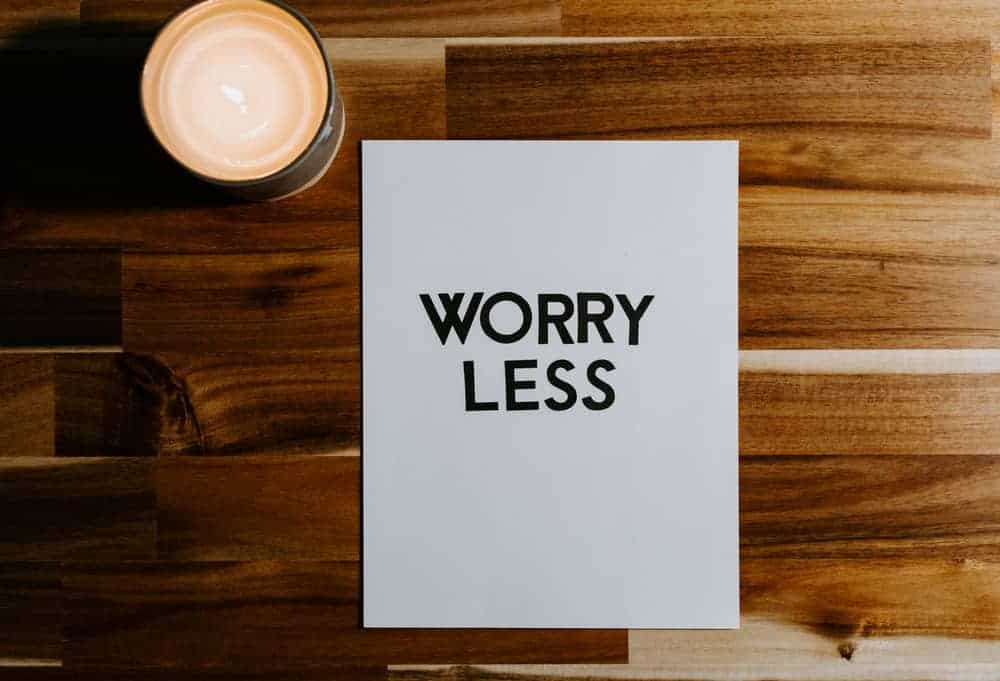We all have stress, but for some it’s life-consuming. How can you tell? Read on to learn methods of managing stress…

Stress is something that everyone is exposed to, to one degree or another, and everyone will suffer from, to one degree to another. Some people will find it easier to cope with stress than others, but no one is immune to its effects. One absolute fact: Stress will affect your mood, your job performance, your relationships, and your health. So you need to create a proactive plan that includes many methods of managing stress to help you deal with it’s impact in your life.
It is common for people to believe that being constantly stressed is normal and that they do not know how to live any differently. Being constantly stressed can have serious health consequences such as developing unhealthy habits and potentially life-threatening illnesses. It can happen to anyone, and it is important to find ways to reduce stress.
This post will explore the most common signs and symptoms of stress and some tips on methods to manage stress.

Signal – You can’t calm down
Even after a long day of work, your evening looks just like any other evening. You may be in the same state of mind and body as when you started your day. Either way, you don’t get a chance to sit down and relax and enjoy your favorite guilty pleasure on television. Being constantly on the go doesn’t allow your brain to calm down or renew itself. If you tense up during stress, your muscles don’t get a chance to relax and regenerate. This perpetuates your stress and tacks on fear and dread.
Ways to help you calm down
These three methods of management stress are good ways to help if you can’t calm down.
- Delegating work to others
- Setting strict working hours
- Getting more exercise to release your stress energy.

Signal – Changes in your eating habits.
People vary in the amount of stress they experience and how they react to it happening to them. Some people tend to overeat under stressful situations, while others forget to eat when they are stressed. H ave you noticed a change in your eating habits or in the size of your clothing? This could be telling you that you’re not managing your stress and need some help finding good stress reduction strategies. It could also be a sign that you have an underlying mental health condition, please contact your doctor or other health professional.
Methods of managing stress to help with changes in eating habits.
There are some simple strategies to help:
First, keep healthy snacks readily available at your desk or around the house so you are not reaching for unhealthy snacks when you get hungry.
Second, set a reminder alarm on your phone so you can at least grab some water or a piece of fruit if you forget to eat.
You can also use this alarm to remind you to get up and move if you’re sitting for long periods of time. It’s a great to get some walking in while adding to your water and fruit intake for the day.

Signal – Feeling overwhelmed
If you have too many things to do and you don’t have a clear idea of what needs to be done next, you may feel overwhelmed. You may not be able to decide where to start. This may cause stress and possibly cause you to feel helpless. If you are overwhelmed by the number of things you need to do, or the clutter that appears to be overtaking every space (insert picture of my home office here!) It’s even worse if you don’t have a support system of family or friends to turn to for help.
Ways to lower stress when feeling overwhelmed
Some solutions to feelings of overwhelm include breathing techniques, positive self-talk and affirmations.

When you start feeling overwhelmed by one or more of your stress triggers, try breathing through the nose and slowly exhaling through the mouth. This relaxes the body and mind, allowing stress to be released.

Stress often turns into procrastination and denial. This is never a productive response. So some methods of managing stress include making sure you are saying positive things to yourself during these times. A great way to do this is to make some pre-written affirmations that are in reading distance from wherever you are (example, some pot-it notes on your computer monitor or cards on the refrigerator.
Then, when you tackle even a small problem such as decluttering a small area of your home or doing one small task, that is progress. Reward yourself with positive self-talk.

Signal – Feelings of low self-worth
Sometimes the consequences of stress manifest themselves in the form of feelings of low self-esteem. Example – you think you have just come up with the best idea ever and are sure that your idea will be the next big thing. When you begin to implement that idea, there may be some unexpected glitches or unforeseen obstacles along the way, and these can sometimes lead to stress and anxiety. That can make you feel like you aren’t cut out for this work, business, career etc.
One way to help with low self-worth
Talking or working with a helpful family member, friend, or a professional coach can help resolve this low self-esteem and put you back on track. Just hearing another person’s perspective can alleviate any doubts you might have. Some other stress management techiques at work include re-thinking the scope of your tacks. Instead of tackling a bigger project or task, take pride when you finish a smaller one.

Signal – Lack of focus
The inability to focus on the job at hand when your mind is stressed out by other matters, or another is often due to a lack of energy. Your productivity is going downhill fast and it’s because a stressor or two is impacting your ability to focus on your work.
Help for lack of focus
Here’s some tips to relive stress if it’s causing you to lack focus: Meditation, walking in nature, and journaling.

Meditation is a stress management technique that includes deep breathing to let your brain slow down and regain it’s focus. Another method is talking a walk outside or in nature and focus on your surroundings and not the stress. Tip – you can also do both at the same time; walking can be a form of mindfulness meditation as well.

Other stress management stratigies and techniques include using a journal to write down your stressors so that you can shift your focus away from them. Some gurus even suggest taking that page of stressors and burning the page as a symbol that you’re “letting go” of the stress and releasing it. Just make sure if you do this that you burn safely.

Actions you can take today to combat stress:
People sometimes don’t realize that they can take control of their health and happiness. But you can! But it is up to you to take action to alleviate stress when – or even before – it appears. So here are some methods of management stress that you can put in your stress fighting toolbelt. They may not be easy to do, but they are some of the best ways of relieving stress for the long term.
- Try to reduce or eliminate your caffeine. Now, if you’re a coffee lover like I am, you need to determine if your love of java is contributing to your stress. For example, if you have 3 cups of coffee (or even tea) in the morning and by mid-day you’re feeling anxious or “wired” then you should consider reducing that to one cup in the morning. And you probably shouldn’t have any caffeine in the afternoon since that’s likely to keep you up at night and impact your sleep routine (which is another stress inducer).
- Eliminate nicotine. Yes, I know that it’s stressful just thinking about trying to kick this addition but here’s something else I know (and I bet you already do) – nicotine is a quick relaxing fix, and it doesn’t last. What you need to focus on is finding source of stress that caused you to need this type of stimulant. If you are stressed out about not having enough money to pay the bills, you need to make a change in your budget or lifestyle. Don’t use nicotine as the band-aid approach to reducing stress because it never works. And it can cause so much more damage to your body and health that it’s just not worth it. Talk with your doctor and figure out the best way to quit. The way that works for you. Just do it.
- Get up and Move it, Move it! Every day, it is recommended that you get up and move. Whether you are going to a gym or doing yoga at home, move your body to give it a good workout. Doing so will help keep your muscles toned, ligaments flexible, and joints pain free. My favorite exercise? Walking. Walking is a simple form of exercise that most people can do (actually, I love mindful walking, but that’s a subject for another post) Try walking to work or running in place in your home. It really doesn’t matter how you do it, just move (of course, move safely!) Just keep in mind that the important thing is to exercise.

- Follow the five R’s to lower your stress level: relax, reduce, repair, recover, and replenish. Identify what stresses you and try to figure out how to relieve the stress that’s causing you problems. For example, if you look around and always see a messy house and it’s driving you crazy with stress, then take control of the situation by hiring a house cleaner to come in once a month for a deep clean. If the admin part of your business is a stressor, try hiring a part time virtual assistant to help you with this mundane work so you can focus more on your business and your customers.
- Keep a Stress Journal. You could also call this a stress diary, but I think that Stress Journaling is best approach (didn’t the word journal take the place of diary this century anyway? I dunno…). Either way, a stress diary or journal can be a tremendous tool to help you figure out what is triggering your stress (so called “stressors”) It could be work, a relationship, some toxic person or situation in your family. Writing down your thoughts, emotions and referencing what happened that day will help you find those patterns that lead to more stress. Then you can use some of the tips you learn here to fight stress head-on.
- Just say no. Yes, just say no. Be selective when choosing the projects that you take on. In order to make sure that you are completing projects that are worth your time and energy, it is necessary to set work boundaries. After your daily work schedule is determined, it is important to inform your family, friends (and in some cases your clients) how to respect your time and how to understand when you are not able to accommodate their requests. Teach them how to respect your business hours and to not call you at all hours of the day and night. This might have to also go for your manager as well. If your company has a culture of always wanted their employees to the “on” all the time, maybe it’s time you found a new employer. Just saying…

Conclusion
Stress is prevalent in every individual’s life, but it doesn’t necessarily mean you need to succumb to it. Recognize what stresses you out and take steps to avoid stressful situations at all costs. By employing some or all of these methods for managing stress, you’ll soon be on your way to living your best life… stress-free!
More From This Category
Living in the Present Moment: Mindful Methods of Managing Stress
Stress can be caused by a variety of factors such as work, relationships, financial issues, and health problems. However, one of the many effective methods for managing stress is by living in the present moment.This post will explore why living in the present moment...
7 Ways to Manage Your Stress at Work
How to deal with stress at work. Stress is terrible. It messes up your brain, creates anxiety, can take away your self-control, and even make you sick. And quite a lot of our stress can come from our work environment. You might have a perfect job and boss, but still...


0 Comments